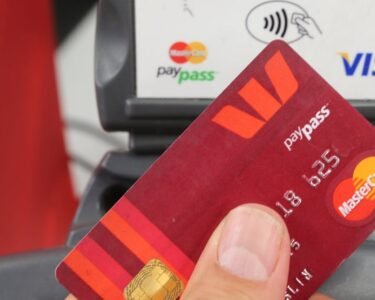In a move that could cut out shonky retail operators who in the past have been charging excessive card fees, the RBA is proposing a complete ban on card surcharging.
The move, which is tipped to hit banks, raises questions as to whether consumers will be hit in the future when they get cash out of privately run ATM machines.
The RBA has unveiled an ambitious proposal to ban all credit and debit card surcharges, potentially saving consumers $1.2 billion annually while forcing major banks to accept reduced interchange fees.
The sweeping overhaul of Australia’s payments system goes beyond the Albanese government’s initial plans and would affect three-quarters of all transactions nationwide.
RBA Governor Michele Bullock announced the three-pronged reform package on Tuesday, stating that “the time has come to address some of these high costs and inefficiencies in the system.”
The proposal targets surcharges on all transactions under the EFTPOS, Mastercard, and Visa networks while requiring banks to publish previously hidden fees levied on retailers.
The central bank estimates that 90 percent of Australian businesses would benefit under the changes, with interchange fees between merchants and banks set to be lowered, saving businesses $1.2 billion annually if reductions are passed through to consumers.
The reforms would reverse a 2003 decision that first allowed surcharging, reflecting the dramatic shift from cash to card payments over the past two decades.

Treasurer Jim Chalmers had previously signalled Labor’s intention to ban surcharging on debit transactions to ease cost-of-living pressures, but the RBA proposal extends the ban to include credit cards.
The central bank will seek industry feedback until August 26, with a finalised proposal due by year’s end and implementation scheduled for July 1, 2026.
Major banks remain divided on the proposals, with the Commonwealth Bank supporting a complete surcharge ban while competitors express reservations.
Westpac endorsed banning debit card surcharges but favoured capping credit card fees, while National Australia Bank warned that a complete ban would unfairly force businesses to absorb all card payment costs.
NAB cautioned that a debit-only ban could drive businesses to impose even higher credit card surcharges to recoup losses.
The banks, along with the Australian Banking Association, argued that interchange fees support crucial consumer protections, including fraud prevention and chargeback rights.
The proposal addresses complexities arising from 8 million combination cards that function as both debit and credit cards, making selective surcharging impractical for many businesses.
Small businesses are expected to benefit from transparency requirements that would help them negotiate better payment processing fees, similar to the advantages currently enjoyed by larger enterprises.

American Express operates outside the RBA’s current regulatory scope through its closed payments network and would initially avoid the changes, though the central bank could extend regulations to include Amex and buy-now-pay-later providers in future reforms.
Australian banks have pushed for these services to be included to ensure competitive parity across the industry.
The reforms face a six-month implementation timeline once finalised, with banks requiring time to reconfigure payment terminals and systems.
While surcharge banning falls outside the RBA’s direct authority, the central bank expects payment networks to voluntarily adopt the changes, with potential government legislation as a fallback option.
The proposal’s impact extends to foreign-issued cards, where Australian businesses currently pay significantly higher processing fees.
The Australian Banking Association has supported reforms to reduce these offshore card fees, which could provide additional cost relief for retailers in tourist-heavy areas.
The comprehensive nature of the reforms reflects growing concern about payment system inefficiencies that have developed as card transactions increasingly dominate Australian commerce, with cash payments now representing a minority of retail transactions across the economy.




